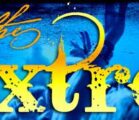Monday December 10th: 2 Tevet
Today is the second day of Tevet and the eighth and final day of Hanukkah. On this concluding day of the Festival of Lights, all eight branches of the Hanukkah menorah are burning bright. The imagery of a menorah with all of its branches producing light has a prophetic element to it. It demonstrates the fruition of the mandate given to God’s people which is to be a light to the nations in the midst of the darkness. This is, in fact, one of the reasons this season is referred to as the Festival of Light.
As we have stated before, many choose to focus on other things; dreidels, latkes and legends of miraculous oil. But did that miracle actually occur? Though it is possible, frankly, we just don’t know. But if we are to emphasize this legend, we must draw attention to the oil. Granted, the light does and should receive more attention and especially considering that it represents the Light of the World. Nevertheless, we can’t overlook the importance of the fuel and here’s why: if there is no fuel willing and available to be consumed, there can be no light to shine in the darkness.
In Zechariah 4, the prophet was shown a vision and asked to describe what he sees:
“I am looking, and there is a lampstand (menorah) of solid gold with a bowl on top of it, and on the stand seven lamps with seven pipes to the seven lamps. Two olive trees are by it, one at the right of the bowl and the other at its left.” (Zechariah 4:2-3)
In this particular vision, the menorah, flanked on either side by these two olive branches, is the inspiration for the emblem of Israel. Being flanked on either side by two olive branches, the menorah impresses upon us that the mandate given to Israel is to be a light to the nations. Furthermore, Messiah said that, because He is the Light of the world, we also are the light of the world. But how are we to be that light if He is the Light? Perhaps it is in the same way that the oil is useful when burning the lights of Hanukkah. By allowing our wills to be consumed, He shines in us and through us. Paul put it this way:
“I have been crucified with Messiah; it is no longer I who live, but Messiah lives in me; and the life which I now live in the flesh I live by faith in the Son of God, who loved me and gave Himself for me.” (Galatians 2:19-20)
We function as light when we die to our will and our desires, so that He might shine through us. Consider then that we are the olive branches in Zechariah’s prophecy. Those branches are designed to produce olives which, once harvested, are put into an olive press to be crushed and pressed. Once the pure oil has been rendered, it becomes the fuel for the menorah.
We believe that Christ is the Light of the World and, because He is the Light, He calls and enables us to be that light. We become that light by serving Him; relinquishing our existence to His purpose and plan. Like the olives harvested from the branches, we make ourselves available to be crushed and pressed, that the essence of our life might be fuel for His purpose – that others might see His Light. In the end, the season of light is about Messiah living in us and though us.
